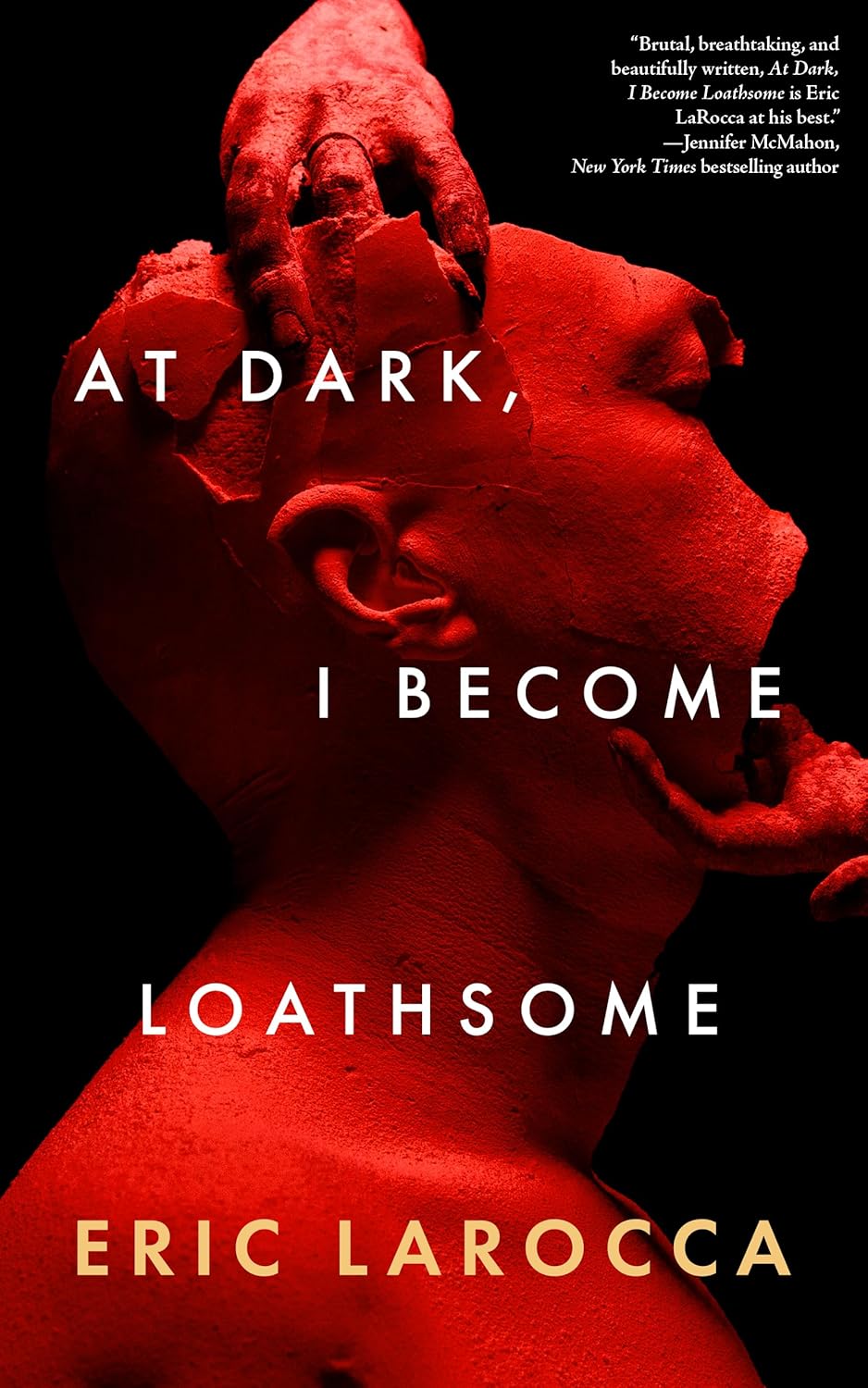At Dark, I Become Loathsome
- By Eric LaRocca
- Blackstone Publishing
- 240 pp.
- Reviewed by Mariko Hewer
- February 4, 2025
This creepy, frustrating tale leaves too many questions unanswered.

As both a fan of scary stories and a writer, I’ve always considered the horror genre to be among the most difficult to execute well. A case in point is Eric LaRocca’s At Dark, I Become Loathsome. While it features the elements of a successful horror novel, it ultimately falls short.
Having lost his wife to cancer and his son to a kidnapper, Ashley Lutin dwells in the twilight zone of a life that no longer feels real. He repeatedly mutters the phrase “At dark, I become loathsome” to himself but believes it’s merely his many piercings — rather than his disturbing thoughts — that make him so. Meeting a woman to whom he has promised a life-changing experience in the form of a “fake death” ritual, he reflects:
“She seems to think for a moment, perhaps wondering how she could possibly trust a man with so many piercings to show her how wonderful life can be.”
Given that he’s prone to fantasizing about sexual violence and about loved ones contracting lethal illnesses, Lutin’s facial studs should be the least of her concerns.
His aforementioned “fake death” ritual, which he conducts as a way of processing his own trauma while attempting to help others, involves burying a willing participant alive for half an hour so that they can contemplate their hopelessness and, he suggests, gain a new lease on life in the process. Even in a horror novel, this begs some questions.
For instance, the ritual’s elaborate instructions state that Lutin isn’t responsible for any harm that may befall participants, but this is pretty murky from a legal standpoint. What would happen if the person inadvertently died for real — or simply emerged unchanged and still miserable? More fundamentally, why is the procedure so life-altering?
Lutin himself harbors conflicting opinions about life after death. He ruminates constantly that there’s nothing for us in the great beyond yet reflects at the end of one of his rituals:
“Because of me, because of my dedication to those who are suffering, she’ll find herself on a voyage into another realm — an infinite chamber where it’s neither night nor day, where time and reason are absent and, more importantly, unnecessary, where the constellations sing poems and sizzle hot like the dying embers of a fire extinguished long ago.”
Despite Lutin’s tragic backstory, it’s difficult to muster much sympathy for him. Haunted by the ghosts of his wife and child, he swings pendulum-like between self-hatred and self-aggrandizement, both misplaced. One night, while browsing the internet for fresh ritual-seekers, Lutin comes across a young man, Jinx, who intrigues him:
“There’s something inexplicable pulling me toward him. I wonder what other dark secrets he might be willing to share…There’s something dangerous about him. It’s almost as if he possesses a dark secret that only I can drag out of him.”
It’s hard to know how he reaches this conclusion, having had only two brief, one-sided conversations with the man. But Lutin nevertheless pursues the connection and meets up with Jinx. (Lo and behold, he does have dark secrets to share. How fortuitous!)
The final twist in LaRocca’s narrative is a masterful stroke, one that’s hard to see coming but nevertheless feels apropos. However, the novel would’ve been so much stronger had Lutin been a more clearly defined protagonist and the “inexplicable reasons” driving the characters more clearly fleshed out.
Mariko Hewer is a freelance editor and writer as well as a nursery-school teacher. She is passionate about good books, good food, and good company. Find her occasional insights of varying quality on Twitter at @hapahaiku.